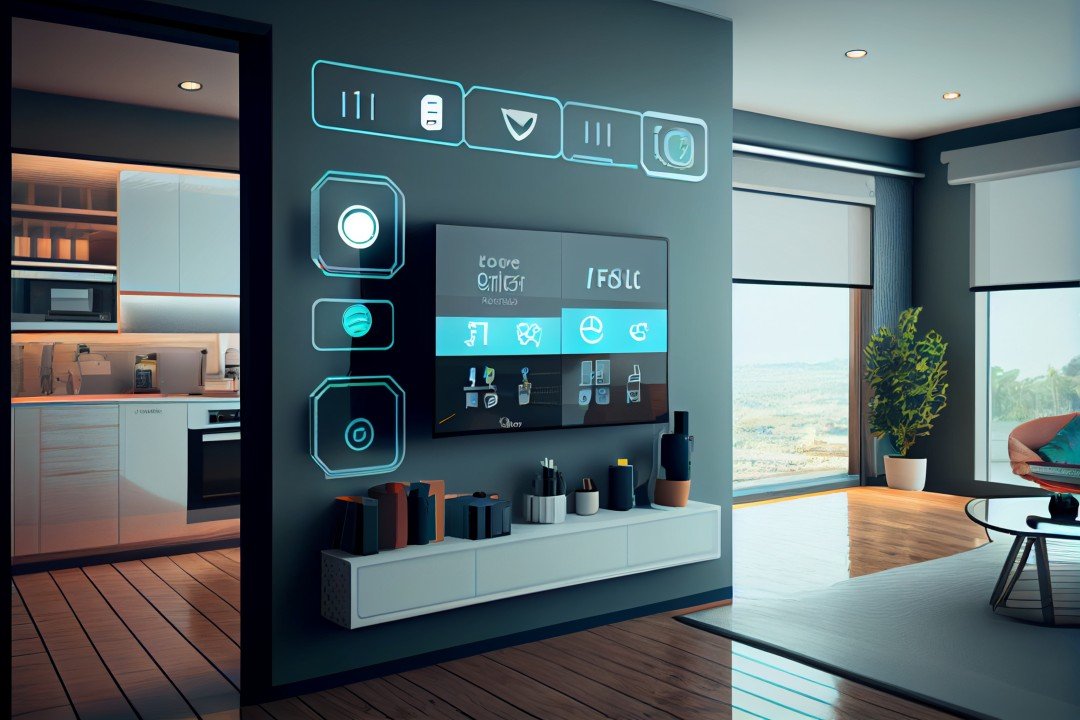El impacto de la inteligencia artificial en el hogar
Muchos aspectos de nuestra vida han sido influenciados por la IA, incluido nuestro hogar, nuestro santuario más cercano. La IA está revolucionando fundamentalmente cómo interactuamos con nuestro hogar, que se conoce como "hogar inteligente“ o “smart home”.
Aplicaciones que mejoran nuestra vida cotidiana
Asistentes de Voz y Control por Voz: Plataformas como Amazon Alexa y Google Assistant facilitan el control de dispositivos y la obtención de información mediante comandos de voz, lo que simplifica las tareas diarias.
Automatización y Gestión del Hogar: La IA automatiza tareas domésticas para una vida más cómoda, como encender luces o ajustar la temperatura.
Seguridad y Vigilancia: Las cámaras de reconocimiento facial en los sistemas de seguridad inteligentes detectan actividades sospechosas y envían alertas en tiempo real.
Recomendaciones Personalizadas: Las preferencias y comportamientos previos de la IA determinan los productos y servicios, desde entretenimiento hasta compras en línea.
Atención Médica y Salud: La IA facilita el monitoreo y diagnóstico médico y el cuidado personalizado.
Automóviles y Movilidad: La IA mejora la experiencia de viaje y la seguridad vial, desde la conducción autónoma hasta la planificación de rutas.
Estas innovaciones muestran cómo la inteligencia artificial está transformando radicalmente nuestra vida diaria, brindando comodidad, seguridad y eficiencia a nuestros hogares. Desde la simplificación de tareas cotidianas hasta la mejora de la atención médica y la seguridad en la carretera, la IA está creando un entorno doméstico más inteligente y adaptado a nuestras necesidades individuales, allanando el camino hacia un futuro más conectado y automatizado.
Perspectivas de la inteligencia artificial
Integración Total: Se prevé que la inteligencia artificial se integre aún más en nuestros hogares, convirtiéndonos en entornos completamente inteligentes y adaptativos. Para una experiencia más fluida y eficiente, se requeriría una mayor interconexión entre dispositivos y sistemas.
Personalización Avanzada: En el futuro, la IA anticipará de manera proactiva nuestras necesidades y preferencias para brindar experiencias aún más personalizadas. Esto incluye cambiar de manera dinámica la iluminación, la temperatura y otros elementos del hogar según nuestras actividades y estados de ánimo.
Seguridad Mejorada: Los sistemas de seguridad impulsados por IA se volverán más complejos con el tiempo y utilizarán análisis predictivo y reconocimiento avanzado para prevenir intrusiones y mejorar la protección del hogar.
Interfaz Natural: Se espera que la interfaz entre humanos y dispositivos sea más natural y sin problemas cuando la inteligencia artificial interprete y responda a nuestras necesidades de manera más intuitiva, ya sea a través de gestos, voz o incluso pensamientos.
Eficiencia Extrema: La IA seguirá mejorando la eficiencia energética y la sostenibilidad en el hogar al optimizar el uso de recursos y reducir aún más nuestra huella ambiental.
Estas perspectivas sugieren un entorno doméstico aún más inteligente y adaptativo, donde la IA anticipará nuestras necesidades y preferencias, mejorará la protección del hogar y optimizará el uso de recursos, todo ello mientras proporciona una experiencia más intuitiva y fluida para los usuarios. Con el continuo avance de la tecnología, el hogar del mañana será un reflejo de nuestras aspiraciones hacia una vida más conectada, eficiente y armoniosa.





